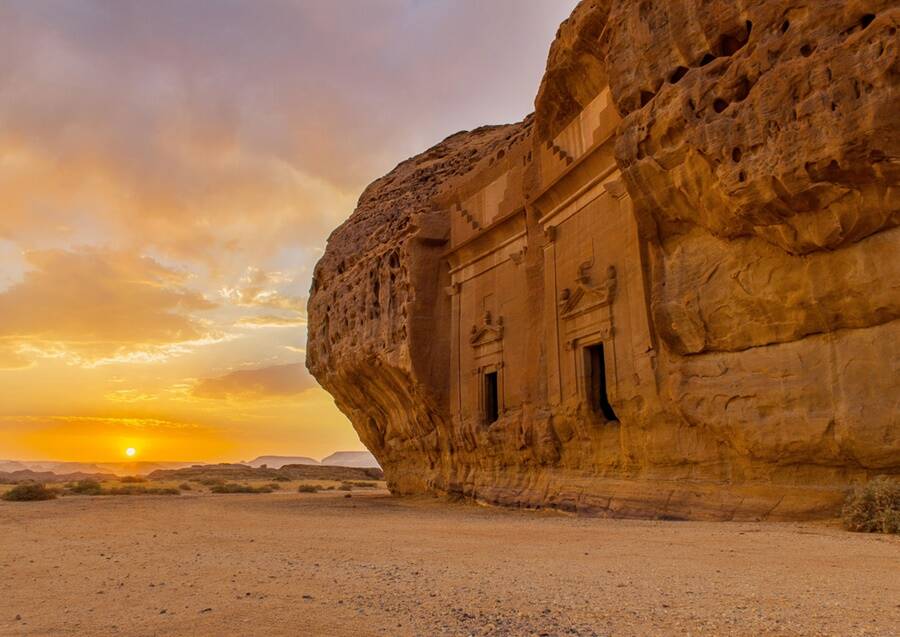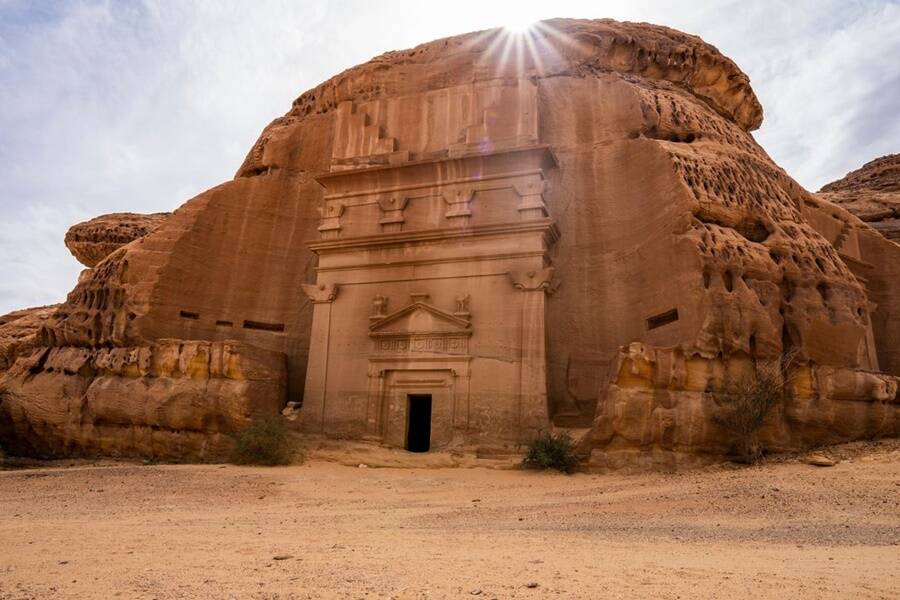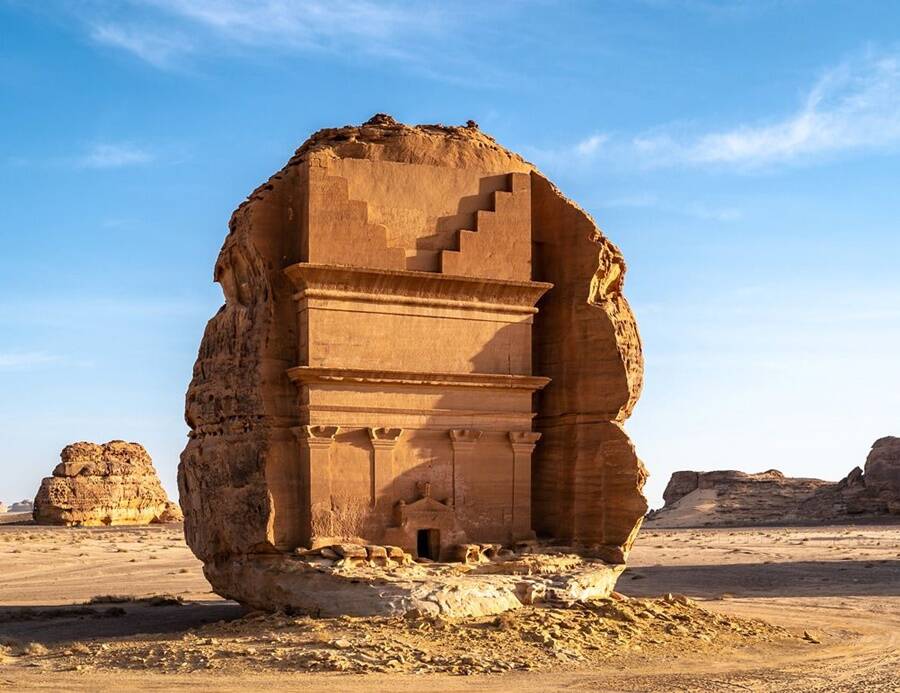Saudi Arabia Opens The Untouched Historical City Of Hegra To Tourists

Saudi Arabia Opens The Untouched Historical City Of Hegra To Tourists
The country has seen the future of Hegra in Saudi Arabia, and it is most probably not in oil. For a nation whose economy is primarily supported by oil production and sales, this is a concern, but the world is evolving in a different direction, a greener direction that precludes continued dependency on oil as energy.

And so, officials in Saudi Arabia have turned to new revenue-generating prospects, and tourism is one of the most promising. The country started issuing its first travel visas in September 2019 to those who want to go to the desert nation for reasons other than religion or business.
Today, people can visit the many historic sites of Saudi Arabia, one of which is Hegra, a city thousand of years old that outsiders have never visited before.
Hegra was once a bustling trade route in the Saudi Arabian desert, but today it is an archaeological site of huge significance to the region.
Archaeologists, historians and good, old fashioned tourists are cheering this new access to an architectural marvel in the midst of the desert.

It was built by the ancient society called “Nabateans,” a nomadic group who excelled at designing and constructing different structures in the midst of an arid, unwelcoming place. After all, smack dab in the middle of a desert is not the first place that springs to mind for a city to thrive and prosper.
But Hegra did, thanks to the ingenuity of those who built it, and consequently the members of this tribe became hugely wealthy and successful, as they created a trade route to Jordan, Egypt, and other places.
Peppercorn, sugar, cotton and many other goods passed through Hegra, and for hundreds of years merchants in the city became rich and successful because of their acumen in trade.
Hegra existed, experts say, from the 4th century B.C. until the 1st century A.D., when it and many others regions, including Syria and Israel, were consumed by the ever-expanding Roman Empire.
Ironically, a city in Jordan, Petra, (called Hegra’s sister city) is similar to Hegra and has been host to as many as one million visitors a year; the architectural features of its more than 600 tombs are an awesome sight to behold.
But Hegra has been completely overlooked, studied and researched mostly by those within Saudi Arabia. Until now, that is; excavation of Hegra is currently underway by experts on a team formed jointly by Saudi Arabia and France.
Those experts, and others around the world, are hopeful that this new access to Hegra will provoke a kind of “intellectual curiosity” in people of all stripes, not just those in archaeology and history.
People should want to learn about the civilization that created these remarkable tombs, said David Graf recently, a professor, archaeologist and Nabatean specialist recently in an interview with Smithsonian Magazine.
Graf hopes that tours of Hegra spark conversations about “…who were the people who created these tombs? These people were creative, innovative, imaginative, pioneering…”
Unfortunately, the Nabateans left no written evidence of who they were and how they lived, and scholars have had to learn about them through secondary sources, such as the writings of Romans and ancient Greeks.

Only the dates and other details inscribed on the tombs give experts an inking of who is buried at Hegra’s 100 tombs — mostly high ranking military officials and their families.
Although it’s wonderful that Saudi Arabia has chosen to open Hegra to more “casual” visitors rather than just the archaeologists and other specialists once granted access, these are tricky times for folks to travel.
But soon, with word on coronavirus vaccines getting more positive every week, the time will come when countries around the globe will be able to open borders to tourists of all kinds, and no doubt Hegra will be flooded with curious people anxious to learn about this ancient, compelling site.